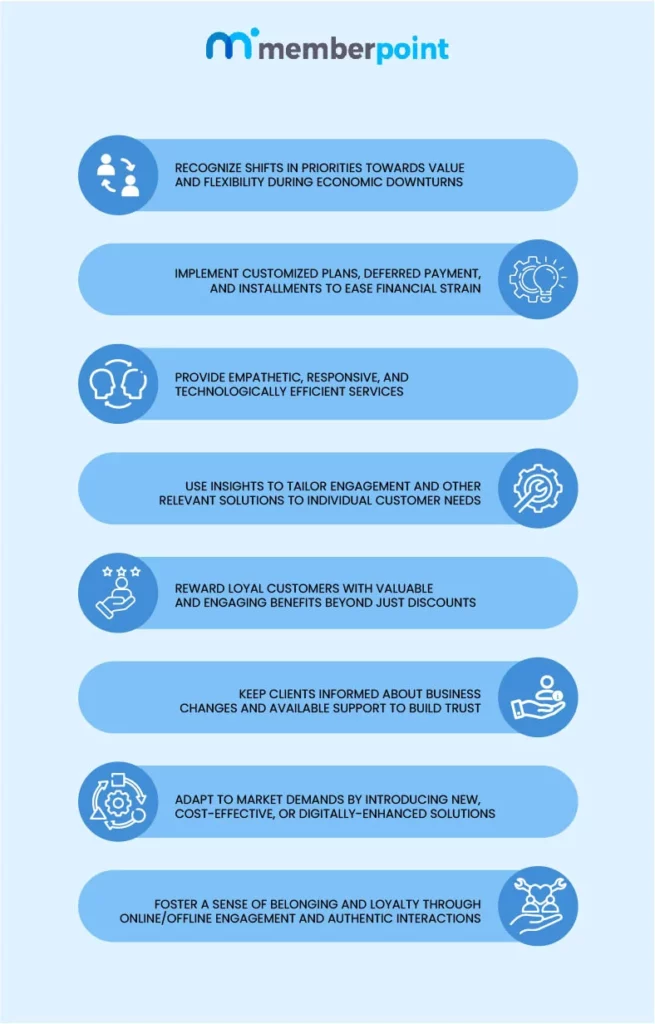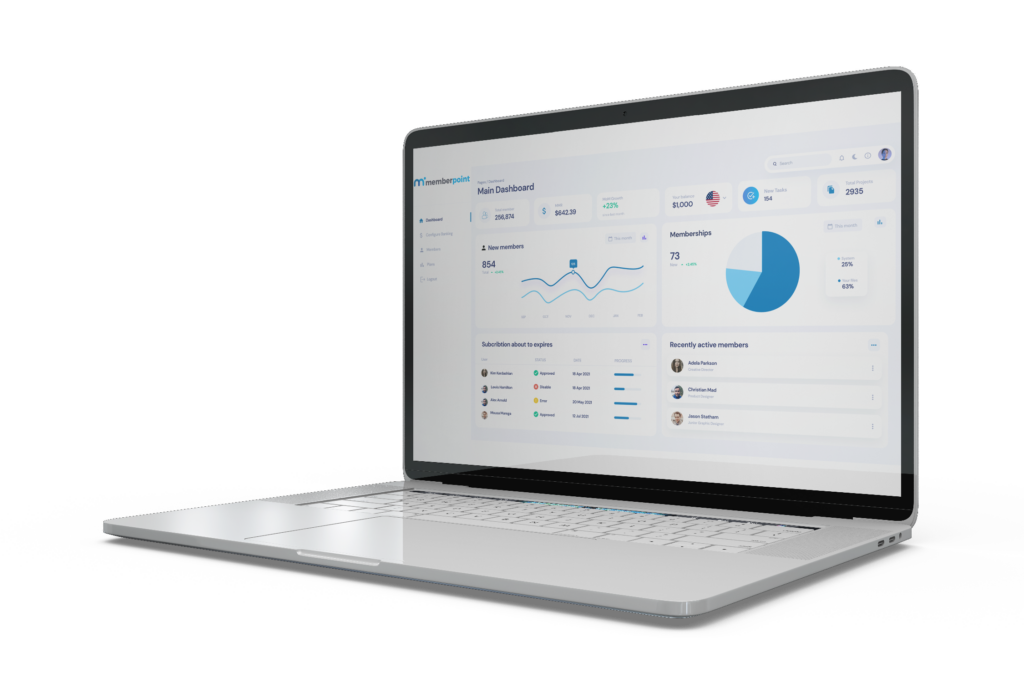

So, Economic uncertainty affects everyone-every buyer and every seller in its own way. When the economy starts to wobble, customer loyalty becomes shaky too. People are watching their wallets, they are more cautious, and suddenly that “loyal customer” you thought you had might be shopping around for cheaper options or pausing purchases altogether. The survival mode just gets on.
However, one thing to understand is that keeping customers engaged and sticking around during tough times isn’t just about offering discounts. It’s actually way more strategic than that. We are talking about getting smarter with retention tactics like behavioral segmentation, fine-tuning your customer journey based on real-time data, and keeping communication super relevant—like, “how did they know I needed that right now?” kind of relevant.
In this post, we’ll discuss the techy but practical aspects, such as using predictive analytics to identify churn risks before they occur, or setting up automated yet still human-feeling touchpoints that make your brand feel close, even when budgets are tight. Keep reading!
During a downturn, acquiring new customers becomes harder and costlier, and retaining existing customers becomes crucial for businesses. In times of economic instability, clients are inclined towards trusted partners who understand their evolving needs and offer stability. The relationships based on trust and value maintain loyalty, even when the spending is tight.
Loyal customers are more likely to remain with a brand even during tough times. They help stabilize revenue and build resilience in economic uncertainty. The clients also become a source of word-of-mouth referrals, helping you build strong relationships and improve brand image and reputation.

So, how can you strengthen business-client relationships during a recession?
Here are 8 powerful ways to maintain and actively strengthen your business-client relationships during a recession.
Economic uncertainty shifts consumer priorities. What was once a “must-have” might become a “nice-to-have,” and budget constraints will become a significant factor in their decision-making process.
Consumers and businesses become more risk and value-conscious. They analyze expenditures and seek solutions offering benefits, cost savings, and long-term value. Impulse purchases decrease, and the focus sharpens on essential needs and reliable solutions. So, consumers opt for bundled offers and affordable alternatives instead of expensive things.
Knowing that the clients are seeking affordable and valuable options, strict contracts and inflexible service packages can affect customer retention. Businesses that adapt their offerings and provide flexibility in pricing, payment, and service delivery can position themselves better to retain clients and build better relationships. Alongside a customer-centric model, you can use recession-proof business strategies like marketing, leveraging a membership model, and finding trusted partners to build customer relationships.
Financial pressure is a reality, and so is the fear of commitment in uncertain times. Providing flexible payment options can be a strong differentiator. It can lighten the load for your customers while building trust and empathy.
Flexibility matters during economic downturns. When customers feel financially supported, they are more likely to stay and return.
Customers wish to be seen and appreciated. So, the customer experience is essential; it can turn happy customers into loyal members.
Train your people with the expertise to listen to and resolve customers’ issues empathetically and efficiently. They appreciate understanding and proactive assistance. Therefore, instruct your people to go the extra mile to troubleshoot, navigate financial hesitations, and foresee customers’ needs.
Technology also significantly contributes to creating a customer experience with superior services. CRM solutions, chatbots, and customized communication platforms can assist you in offering seamless and effective support across channels.
Don’t forget that the objective of technology usage is not to eliminate the human element. The primary purpose is to offer personalized messages and rapid resolutions to enhance customer satisfaction.
Action Steps to Improve Customer Experience
Understanding what your customers need is more crucial than ever. Data analysis and data-driven insight can help businesses predict their needs and provide effective interactions.
Organizations that use personalization and data can thrive by decoding customer behavior, preferences, and engagement patterns. It helps businesses offer relevant products, services, or messages that connect with customers, making them feel appreciated, enhancing loyalty, and establishing robust relationships.
You can utilize CRM and analytics tools to learn about your customers’ history of purchases, behaviors, and needs. It will enable you to spot trends and segment customers to customize your strategy. You can then concentrate on sending personalized messages that resonate with particular pain areas and opportunities.
Loyalty programs remain among the most effective tools for keeping customers during a downturn. With customers’ spending patterns shifting, programs addressing rational and emotional needs will help brands retain their most loyal customers.
Clients will stick to brands that understand their needs, reward their trust, and make them feel valued. According to a Survey, 79% of consumers said a brand’s loyalty program encourages customers to continue doing business with them. When customers feel appreciated, they are more likely to:
Keep in mind, loyalty programs can be different than monetary exchanges. It can include gamification of referrals, reviews, and more. These tactics make loyalty programs more individually relevant and increase the effectiveness of your campaign. Combine loyalty programs with low-cost marketing tactics to retain customers even when the economy is not good.
Transparent communication is a fundamental pillar of successful client relationships. It builds trust, fosters strong relationships, and drives success. Clients need to know what’s happening with your business and how it might affect them.
Proactively communicate any changes in your operations, pricing, and service delivery. Explain the reasons behind changes and highlight any support or resources you offer to navigate economic challenges. Moreover, keep your communication channels open and responsive to client inquiries and concerns. Quick and transparent communication can prevent misunderstandings and build confidence.
Remember, Honesty builds credibility. Even if things aren’t perfect, customers will appreciate your openness.
When the economy changes, being flexible matters; don’t hesitate to evolve. By tweaking what you offer to match new market needs, you can create useful solutions in tough times.
This expansion can help you connect with more people, spread out risk, and create new ways to make money. By changing and coming up with new ideas when the economy is shaky, businesses can open new doors, make their market position stronger, and come out of a downturn even better than before.
Connecting emotionally with your customers can be a game-changer. It personalizes your brand and helps cultivate trust and customer loyalty. It involves building a deeper connection with your audience and making people feel something when they think about your brand. The emotional connection with your clients creates deep-seated loyalty
You can create stronger and emotional customer relationships with the following strategies.
Emotional connection with your customers is invaluable for your business. The authentic connection you create will naturally market your brand for you. It’s an excellent long-term strategy that will pay off greatly in the long run.
In uncertain economic conditions, it’s not just about engaging customers, it’s about keeping them connected and fostering loyalty. People stick with brands that understand their needs, stay transparent, and make life a bit easier when it matters most. Whether it’s flexible payments, better services, or smarter communication, these recession tactics are long-term loyalty builders.
When nurtured with tools like MemberPoint, strong client relationships can build community and personalized communication. The tool can help you survive, thrive in an uncertain economic landscape, and develop lasting relationships.

Start building deeper engagement and loyalty today with MemberPoint; the all-in-one platform for smarter membership management and retention.

Your all-in-one destination for memberships, subscriptions, and installment plans.
16755 Von Karman Avenue #200, Irvine CA 92606
hello@memberpoint.io